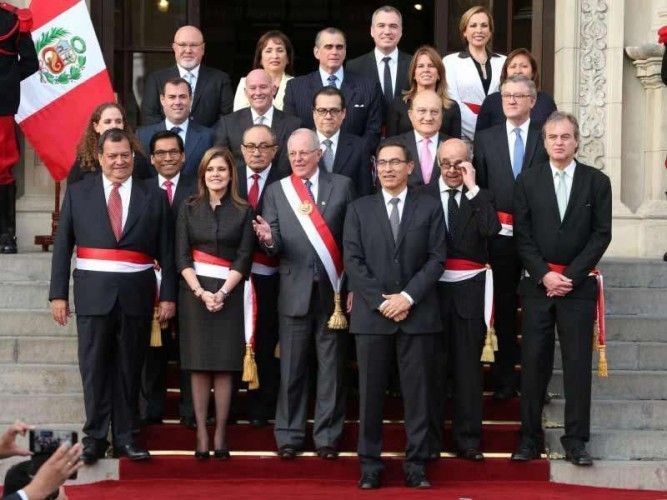For weeks classes were suspended in Peru due to a controversial teacher’s strike. After long and intense negotiations teachers are back at work, students returned to school and the contentious education reform is back on track. Everything good? Nowhere near.
President Pedro Pablo Kuczynski has no majority in the Peruvian Congress and his hands are often tied. So last week the opposition controlled congress under Keiko Fujimori's Popular Force party decided to proceed with a no confidence motion against education minister Marilu Martens due to her incapacity of handling the teacher’s strike in an appropriate manner and her lack of political experience.
Not wanting the 4th minister forced from his cabinet by the congress since the Peruvian President took office a little over a year ago, he decided on a bold step. Last Wednesday Peru’s Prime Minister Fernando Zavala submitted a motion of no confidence on behalf of the Council of Ministers. In his speech, he called on the congress to work in harmony for the good of the country instead of obstructing the introduction of new state policies that improve the country. He explained that this in Peru never before seen move is supposed to ensure the countries governability and the for the country vital implementation of the education reform.
The congress however criticized the motion of no confidence as an irresponsible move on part of the government and dismissed PPK’s entire cabinet with 77 votes against, 16 abstentions and only 22 votes in favor of its continuance in office forcing all ministers to resign.
Even though amidst one of the largest political crisis in decades, the Peruvian Head of State remained standing firm and announced he wouldn’t give in regarding the education reform
According to the Peruvian Constitution, the President appointed a new Council of Ministers over the weekend and swore in the new members of the ministerial team last Sunday afternoon at the Government Palace in Lima. The appointments were made official today.
Mercedes Araoz replaces former Prime Minister Fernando Zavala
Completely new to the Council of Ministers are:
- Minister of Education: Idel Vexler
- Minister of Economy and Finance: Claudia Cooper
- Minister of Health: Fernando D’Alessio
- Minister of Housing, Construction and Sanitation: Carlos Bruce
- Minister of Justice: Enrique Mendoza
The following ministers were re-appointed:
- Minister of Foreign Affairs: Ricardo Luna
- Minister of Defense: Jorge Nieto
- Minister of the Interior: Carlos Basombrio
- Minister of Agriculture: Jose Manuel Hernandez
- Minister of Labor: Alfonso Grados
- Minister of Foreign Trade: Eduardo Ferreyros
- Minister of Energy and Mines: Cayetana Aljovin
- Minister of Transport and Communication: Bruno Giuffra
- Minister of Production: Pedro Olaechea
- Minister of Women and Vulnerable Population: Ana Maria Choquehuanca
- Minister of Environment: Elsa Galarza
- Minister of Culture: Salvador del Solar
- Minister of Development and Social Inclusion: Fiorella Molinelli
Within the next 30 days the new government has to present its general policies to the Peruvian Congress for approval. If the Congress denies this approval or rejects the new cabinet, the Peruvian President has the right to dissolve the congress and call for new elections.
To avoid this, newly appointed Prime Minister Mercedes Araoz appealed in her first speech to the political opponent's conscience. She reminded the opposition-lead congress that Peruvian voters decided to give the Popular Force Party the majority in parliament, while at the same time voting for the center-right Pedro Pablo Kuczynski as their president. Thus, Peruvians expect that the two political opponents work together, share the responsibility and communicate in a productive manner to continue the progress of Peru and its people.
We have to wait and see how the situation further develops on Peru’s political stage. It might get interesting in the coming weeks.


